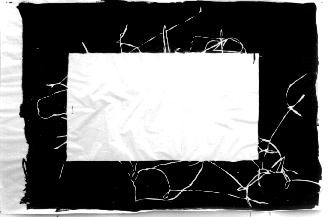"Both for the production on a mass scale of this communist consciousness, and for the success of the cause itself, the alteration of men on a mass scale is, necessary, an alteration which can only take place in a practical movement, a revolution; this revolution is necessary, therefore, not only because the ruling class cannot be overthrown in any other way, but also because the class overthrowing it can only in a revolution succeed in ridding itself of all the muck of ages and become fitted to found society anew." - Karl Marx, [Critique of] The German Ideology
What is expressed in the tongue-and-cheek allegory of my blog post "Marx's class-in-itself becoming a class-for-itself" (http://thecentralcommittee.blogspot.com/2014/11/marxs-class-in-itself-becoming-class.html) is a stage in the historical development of human society (or 'social humanity') that appears as 'revolutionary consciousness.' Marx insisted in The Germany Ideology that such a consciousness presupposed a 'revolutionary class', whose preconditions for existence, its essence, are outlined in a continuous thread running through all periods of Marx's authorship, but under more apparently economic categories in his later years up to Capital. The 'division of labor' that Marx's investigations into modern political economy led him to take a critical stance against, and the pressures of production under which its extension and development in the form of 'bourgeois production', become the loci for the liberation of' consciousness from the 'alienation' treated by the earlier Economic and Philosophic Manuscripts of 1844 as an aspect of the 'positive humanism' embraced by Marx in its final pages as the goal of a communist revolution.
Does this suggest, then, a renunciation of this humanism in Capital, in favor of 'scientific' materialism? No, in spite of revisionist efforts to exaggerate the significance of this lacuna in Marx's own writing.
To begin with, one must first remember that Marx did not accept the 'division of labor' fetishized by Adam Smith to be purely a category of political economy. Marx's Capital is not a manuscript on political economy, but a critique of political economy as a human science. Its search for the rise of class society and the State in the division of labor is a critique of the concept, and a critique of political economy's application of this concept to the practical solution of the problem of social want.
Marx first admits that such a basic division of labor is necessary when the instruments of production are confronted with changes in the relations under which social production is carried out. The first change is that of population, which requires revolutions in the mode of production for it to satisfy an increasing set of needs for more and more people. The first stage of this transition corresponds to the first stage in the development of consciousness, experiencing itself through it needs for things outside itself, its needs for the means to satisfy itself, and further, for the instruments of production it must develop to acquire these means. In foraging societies, many of these instruments must be reinvented daily - arrows, flint blades, firewood, etc. - and only achieve permanence with the rise of commerce and exchange between groups. Modern bourgeois production becomes the form under which the productive forces achieve a universal, permanent existence. Such a positive development, as all things do with Marx, have a negative, destructive aspect which lies in the specialized, extended division of labor modern production calls forth necessarily.
Labor, subdivided by this division, into the monotonous and restricted tasks of 'detail labor' in modern manufacture - creating independent branches of the subject of labor's activity - is carried out alongside itself in the same enterprise by isolated laborers, before they are further broken down into even more isolated subdivisions under the large-scale factory of modern industry. Finally, industry separates entirely from its commercial basis, and commerce finally separates entirely from agriculture. Science for the first time appears as an independent branch of activity isolated from industry. What is in fact the most socially binding mode of production presents itself to the class of 'proletariat' it dominates as the most private and individual, expressed in the ideology of 'free labor' and 'free competition' that emerges as modern production's ideal superstructure. The laboring subject experiences itself in what is other-than, what it is not. Its experience and comprehension of its existence as a subject, alienated from its objective power, is the experience of its annihilation, understanding itself in and through its negation as a subject. Realizing its destruction within the private property its collective economic activity, which it is compelled to carried out, accumulates for others, it strives to destroy this private property, and thus its own existence as the destitution and misery this accumulated wealth confronts as its antithetical 'Other.'
Consciousness is first developed by the individual in the act of producing the means and instruments by which its needs are satisfied, a process which leads to the development of new needs, and determines the form under which this production is carried out. Consciousness is therefore social, and social revolution is no more or less than the release of consciousness from the burden of a form of material production that represses its desire to reunite with the objects of its practical, sensuous activity.
Revolutions are the conscious expression of the social being's struggles to comprehend itself and its connection to its material origins.
And what form of the state must be established by this class in its struggle to release itself from the burdens of production, and gain access to the productive forces it unleashed for its exploiters, for its use as an instrument in the development of the potentials and faculties of the individual into those belonging to the whole human species? Without question, the only form of the state capable of expressing the creative, spontaneous activity of the human race in its production is democracy, that form of social organization through which it can finally comprehend and express itself as free and genuinely alive.

No comments:
Post a Comment